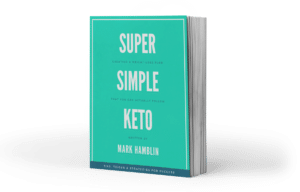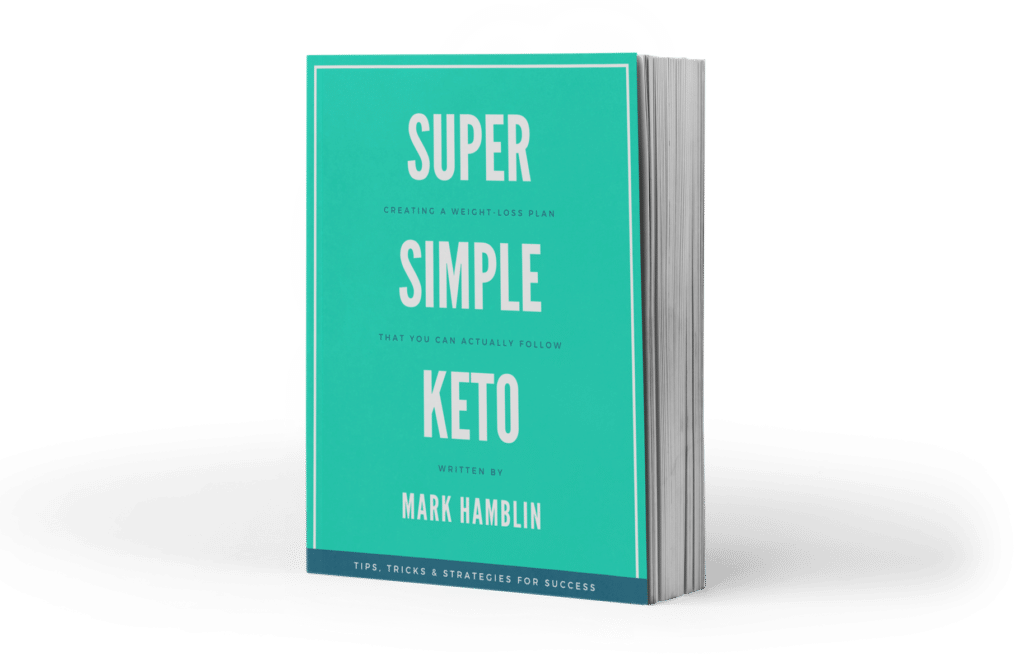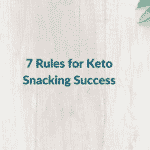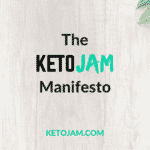Keto. Low-Carb. Atkins. LCHF. Bulletproof. All of these diets, or “ways of eating,” have been blowing up in popularity recently.
Are they just new “fad” diets, popular today, but gone tomorrow? Are they sustainable? Do they work? Are they some sort of “magic pill” for weight-loss? Do calories matter? Do I need to exercise to lose weight?
Well, there’s about as many opinions on these things as there are ears of corn that decorate the Corn Palace in Mitchell, South Dakota. (275,000 actually) There are opinions from real doctors and actual scientists, but also from a variety of bloggers, amateur cooks, fitness trainers, and even scam artists looking to make some quick money selling you crap you don’t need. There’s lots of noise out there, indeed, and sorting out the good information vs. the bad becomes harder and harder. And on top of that, while we are all humans, individual people respond differently to a variety of diets, motivation, and weight-loss strategies.
Uggh… so then where do we begin?
My goal with KetoJam is to humbly share with you my own weight-loss journey, share what worked for me, and to be practical and “real” about it.
At the age of 32, weighing over 400 pounds, I was on course for major health problems, and likely an early death. But with a combination of changing what I ate, doing some basic exercise, changing my mindset, and enlisting people to support me, I managed to change my life. Those are the things I’m going to share with you here at KetoJam. You’ll probably hear me say some stuff that sounds like common sense, but also some stuff that goes against the norms, even the norms of the rest of the Keto community. Either way, I will only be sharing stuff that either worked for me, or new information coming out of the scientific community.
I am hoping that there may be a few other people out there who resonate with my story, and perhaps I can help them change their lives for the better as well. Perhaps that will be you, or perhaps you’ll think I’m full of crap, you’ll close the browser tab, and go back to watching cat videos on YouTube. Either is OK with me.
So without further ado, here’s a quick summary of my personal beliefs and opinions on the Ketogenic Diet and Weight Loss in general. Let me know your thoughts in the comments section below.
Losing weight is hard, but it’s way easier than we think, and it’s really quite simple.
I know… if someone told me this when I was first starting, I’d want to punch them in the nose. But I really do believe this. When you’re 400 pounds and its hard to just get up off the couch, the thought of going out for exercise seems more difficult than moving a mountain, especially if the motivation isn’t there. But if we can find the motivation, put some systems and processes in place to make it easier to eat right (which I can help with), then weight loss can almost happen on autopilot.
Diet and Exercise for weight loss? Sure, but focus on these 4 things instead:
Everyone always thinks that they just need to focus on diet and exercise to achieve weight loss success. Well, of course these things are important. But they’re only one small piece of the puzzle. I like to focus people one these 4 things:
- KNOWLEDGE: Knowing what to eat / not eat / how much (diet). Knowing what exercises to do. These are the technical things. This is the “what“.
- MINDSET & MOTIVATION: This is the most important thing one should focus on. Without the right mindset, and without maintaining focus on our motivation, even someone with great technical knowledge can fail. With the right mindset, anything is possible. This is the “why“.
- SYSTEMS: Notice I did not say “habits.” Habits are the end-result of good systems. We need to put structure and systems into our lives to make building habits easy. This includes things like setting a default shopping list for ourselves, gamifying our lives to build in exercise, and doing things to remind us of our motivation. This is the “how“.
- SUPPORT: Implementing changes in our lives is very difficult on own own, even if we think we’re really motivated. Enlisting the help of others, holding each other accountable, and sharing in each others’ successes are simply more fun. Duh.
The Ketogenic Diet is the best weight-loss diet for most obese people.
This is a bold statement, I know. But let me explain. First, I’m talking about obese people, not someone who has maybe 10 pounds to lose. My theory is that most people become obese through a combination of food addiction, compulsive overeating, and screwed up metabolism from overindulging on carbs and sugars — all of which are helped specifically with a Ketogenic Diet. I also believe a Keto diet is the most sustainable diet for people with these bad habits.
The Ketogenic Diet community overcomplicates so many things. Keto is really quite simple.
Many followers and “teachers” of the Ketogenic Diet make the diet seem highly technical — with very specific “rules” about exactly how to split your macros (fat, protein, carbs), exactly how many calories to eat, and exactly what ingredients to avoid. People often view these rules as completely black or white. All or nothing. They preach that “you MUST do this” or “you MUST eat this specific brand of X.” I call people like this “Keto Krazies,” and they often don’t understand why they should eat a certain way, so instead they just regurgitate what they hear from others. This confuses people and scares them away. We like to help people understand the why behind what they eat, and to keep things really simple, not so black and white.
Focusing on food quality is deceiving, confusing, and often leads to less effective weight-loss.
This is a huge pet-peeve of mine. All too often, people decide they want to eat more “healthy” or “eat clean”. That’s all fine and dandy, but that can mean so many different things and it can cause people to confuse their priorities and spend their effort trying to “fix” problems that either don’t exist, or are very low priority. For people who are significantly overweight, being overweight is likely their #1 health problem. And probably also the cause of their #2, #3, #4, and #5 health problems. So…. they should focus on the weight problem FIRST, and worry about all the other stuff later. If you’re on a sinking ship, focus on doing whatever it takes to plug the big hole in the bottom of the boat — not on trying to sweep the deck. You can sweep the deck later.
Calories DO matter (as long as you’re eating the right things).
Ah yes… the calories debate. There are people who say that calories don’t matter at all for weight loss, as long as you eat Keto-friendly foods. And there is the old school way of thinking that weight loss is just about Calories In vs. Calories Out (CICO). Personally, I think this is a stupid debate, and anyone who clings to one side of it is a complete moron with low IQ (yes, I’m being judgmental). Me? I believe that choosing WHAT we eat is priority #1 (avoiding carbs/sugars), but limiting our intake to a reasonable level is also critical for weight-loss on Keto. See below…
Amount DOES matter (at least for weight-loss).
There are many people in the Keto world that claim “Never count calories again! Eat whatever you want on Keto!” That may work for some people, particularly people who choose Keto for reasons other than weight-loss, or don’t have significant weight to lose (yes, there are many non-weight-loss benefits to Keto). But using myself as an example, most people who are significantly overweight didn’t get that way just because they’re eating the wrong thing — they’re also eating WAY too much, due to food addictions, emotional overeating, binge habits, etc. — habits that make people eat double, triple, or even 10x the amount they should. These things are still possible while eating Keto (although it’s easier to fight them, IMHO). Based on my many years of eating Keto, I’ve found that when I overeat on Keto, I don’t necessarily gain weight, but I certainly don’t lose weight either. Even when you’re eating the “right” things, you can’t overeat and expect to drop weight.
Exercise is important for weight loss, yes, even on Keto.
I firmly believe this, based on my own experience, but probably not for the reasons you expect. Over the years, it was very obvious to me: when I exercise regularly, I lose more weight — when I don’t exercise, my weight-loss stalls. It’s not about “burning calories.” It’s about these 3 things: 1) Exercise helps your body “burn up” any excess stored glycogen (from hidden / excess carbs I eat) which keeps me in ketosis; 2) I “feel” my muscles more after exercise, which reminds me of my progress and continues to motivate me; 3) When I exercise I eat better, and when I eat better I exercise — it is a very real “virtuous” cycle of awesomeness.
Short-term (“crash”) diets have a purpose.
This one is controversial, but I believe it. “Crash” diets have such a bad rap. “They’re not sustainable!” “They’re unhealthy!” “Don’t make big changes, but just make some small sustainable changes!” Yes, I understand why people say these things. However, I STRONGLY believe that “crash” diets, at least a Ketogenic-style diet with a focus on achieving a short-term goal, has a purpose. It’s what I used to get started. I believe that seeing early signs of visible progress are CRITICAL to sticking to a diet long term. We need to prove to ourselves that we CAN do it. If we make only small changes, chances are that we won’t see any real changes after 1-2 weeks, and we’ll give up. It happens all the time. Instead, if we go at it with big changes that lead to VISIBLE RESULTS in a short timeframe, we’ll say to ourselves “Holy crap! I can do this!” and the success will continue to motivate us. Success breeds success, and what started as a short-term thing can absolutely lead to long-term changes. It certainly happened for me.
Most “diets” don’t work because they only focus on the “what”, not the “why” and “how”.
Weight-loss is a mental game. Just about any “diet” out there requires discipline — eat this, not that. Knowing what to eat and what not to eat is really just the easy part. Everyone knows that eating four glazed donuts for breakfast is not healthy, no matter what “diet” you follow, but still so many people do it, even when they know they shouldn’t. Figuring out how to find the strength to NOT eat those donuts is the hard part. Here at KetoJam, we give you the “what” — the knowledge of what to eat / not eat — but we like to focus more on the “why” and “how” — helping with the MINDSET, SUPPORT, and SYSTEMS to make you successful.
Supplements are completely unnecessary on Keto.
Snake-oil salesmen have been around for a very long time… And they’re all over the health and fitness world. Many people take advantage of the newness and over-complication of the Ketogenic Diet and try to sell you either decent products that most people absolutely don’t need, or just complete crap. Despite many claims, there is no such thing as a supplement that will magically make you go into ketosis (especially if you’re still eating carbs). And many supplements that provide “extra ketones” (MCT oils, Bulletp…, etc.) are just completely unnecessary for people trying to lose weight with Keto. You don’t need “extra” anything if you’re trying to lose weight — many of these ketone supplements are only helpful for high-performance athletes who eat Keto, with incredibly high energy demands. Here at KetoJam we promise never to sell you on any supplements.
Cheat-days are stupid.
Some people tell me they like a certain “diet” because it allows one cheat day per week. [commence eye rolling] If it works for you, great. But it sure as hell didn’t work for me, and I think its stupid for most obese people. Like I’ve said before, I think most obese people suffer from things like food addiction, emotional overeating, and binge eating, particularly for carb/sugar foods. For me, cheat days would often turn into cheat 2-days, or cheat 4-days, or even cheat weeks, or cheat months. Why tempt yourself like that, suffer big emotional setbacks when you see the scale spike up, and have to expend so much mental stamina to get back on track? Tell yourself that you can cheat all you want once you reach your target weight. (Chances are you won’t want to once you do reach that weight…) Recovering alcoholics and drug-addicts would laugh at the idea of cheat days when battling their substances… and I think similar logic applies to food for weight-loss.
Personal training is stupid.
OK, let me clarify. There are many really great trainers out there, and most of them have great intentions to help people. But working with a trainer in the traditional personal training model at a mainstream gym is NOT the magic pill to weight loss, at least not on it’s own. The model is broken. Its not what you do in the gym that matters for weight loss… its what you do the other 97% of your time that makes a difference. Most trainers will do NOTHING to help you figure out what to eat, systems for building good habits, finding your motivation for success, etc. Most of them just focus on teaching you a small piece of the “what”, but none of the “why” or “how”. If working with a trainer is the ONLY way to get yourself to do ANY physical activity, then fine, go for it, but just going for some long walks will be just as good in terms of exercise.
The health & fitness industry is run by people who don’t know how to lose weight.
We see it everywhere… pictures of people with super fit bodies saying “get abs like mine using these 3 simple steps!” Those “fitness buffs” who dominate the health and fitness industry have been fit and skinny their whole lives. For them, eating right and prioritizing their health comes naturally and without effort — that’s why they pursued a career in the industry to begin with! But these people have NO IDEA what its like to be significantly overweight and NO IDEA about the mental struggles many of us deal. They cannot connect and identify with the people like us who need help the most — and its like they’re speaking an entirely different language. If you want to go from 8% bodyfat to 4% bodyfat, then fine, listen to the “fitness gurus” — but if you want to go from 40%+ bodyfat back to “normal”, you have to work with someone who can identify with you and speak your language.
Most overweight people never eat because they’re actually hungry.
“Eat until you’re full.” “Only eat if you’re hungry.” Haha, that sure sounds great… but most people with lots of weight to lose have no idea what that really means. Even if they can agree to it in principle, they have no idea how to actually do it. I certainly didn’t, and I honestly still struggle with it today. Why? It’s just science – physiology and psychology. People often develop food addictions, eat for emotional reasons, and build bad habits with food. We train our brains to use food for things other than satisfying hunger and fueling our cells. There’s also the hormonal imbalances we cause by overeating — consistent overeating can actually cause our “hunger hormones” to go out of whack, so the natural chemical triggers in our bodies to feel “full” just don’t work anymore. This is a real issue overweight people have to deal with, and we need to implement ways of eating, “diets,” and other “tricks” to force ourselves to overcome these things.
“Make small, sustainable changes” is bad advice.
“Just cut out one snack per day.” “Cut back on X, Y, or Z.” “Make small, sustainable changes.” Bullshit. Sure, these things can be better than the alternative of making no changes at all. But I think these sayings are bad advice for people who have lots of weight to lose. If we only make small changes, we won’t see any visible progress, we’ll get discouraged, and we’ll give up. Overweight people need to make LARGE, SIGNIFICANT changes so they can see real progress and positive changes in their bodies, which will in turn provide additional motivation for continuing. That’s what happened with me at least. Half-efforts turn into no-efforts. Focus on the short-term wins, which will lead to long-term success.
“Everything in moderation” is bad advice.
Go tell this to a recovering alcoholic and he/she will laugh at you. Some people shouldn’t do certain things, even in moderation. Telling someone with a food or sugar addiction (which most obese people have, IMHO) that glazed donuts are OK in moderation is stupid. For a normal-weight person who can better control their food intake, it may be OK, but not the overweight person. I believe moderation is not sustainable.
Food and sugar are real addictive substances and overeating / obesity should be treated as such.
I’ve alluded to this many times already, but I wanted to explicitly spell this out. I firmly believe that food addiction is a very real thing, and sugar itself is an addictive substance. And I believe these things are FAR more common that we all want to admit. There is certainly a stigma associate with having an “addiction,” so none of want to admit it. But its real — its the reason that whole bag of chips disappears once it opens. The reason we keep going back to the kitchen for more snacks. The reason why Pringles says “once you pop you can’t stop.” Call it what you want, but I’ll call it addiction. I think if we start treating obesity as an addiction, similar to alcoholism and drug-addiction, we’ll be able to help many more people, even those that are only slightly overweight.
Summary
OK, that was long. If you’ve read this far, you rock. Perhaps you agree with some of the things I wrote, perhaps you think I’m totally crazy. Whatever. I know not everyone will agree with me. But I believe my story is not unique, and there are certainly others out there that I can help.
Let me know what you think in the comments below, and certainly feel free to reach out if you want to chat.
Thanks,
Mark
CONFUSED ABOUT KETO?
Get a FREE copy of my popular book
SUPER SIMPLE KETO
and stop feeling overwhelmed!

Hi, I'm Mark

I completely changed my life with the Ketogenic Diet, and I started KetoJam to help you do the same.
Read my story.
JOIN THE KETOJAM FAMILY
Subscribe to the KetoJam newsletter for all of our new recipes, program updates, and our exclusive discounts on our training and coaching programs.






